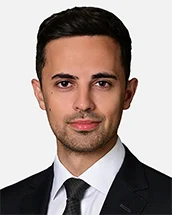The Wirecard story is a true economic thriller: monies disappeared, offshore accounts were faked, managers were arrested or fugitive, possibly with connections to intelligence services. As such, Wirecard goes down as one of the most sensational scandals in German economic history. Today, it has been almost three years since Wirecard AG filed for insolvency. Since then, private and institutional investors have been trying to recoup their losses through individual lawsuits or model declaratory actions against various parties involved.
In 2022, four investors sued the Federal Financial Supervisory Authority (Bundesanstalt für Finanzdienstleistungsaufsicht, “BaFin“) at the Regional Court (LG) of Frankfurt am Main. Their main allegation was that BaFin had failed to prevent market manipulation by Wirecard. If BaFin had worked properly, the damage to investors would have been prevented.
BaFin is a government agency. The legal basis for a claim for damages against such an agency in Germany is the so-called public liability law (Amtshaftungsrecht). A public liability claim has numerous prerequisites. Above all, it requires that the authority has violated a third party-related official duty. An official duty is third party-related if it also exists vis-á-vis the aggrieved citizen. In contrast, a duty is not third party-related if the authority performs its duties only in the public interest.
On January 19, 2022, the Regional Court (LG) of Frankfurt am Main denied all four damages claims (Ref.: 2-04 O 65/21, 2-04 O 531/20, 2-04 O 561/20, 2-04 O 563/20). The court found that BaFin cannot be held liable for the Wirecard scandal. One of the investors filed an appeal against the first instance decision, and this is where the Higher Regional Court (OLG) of Frankfurt am Main came into play. On 6 February 2023, i.e. almost one year later, the Higher Regional Court Frankfurt has now affirmed the first instance judgment (Ref.: 1 U 173/22). The Higher Regional Court’s judgment could not be clearer and brings bad news for investors: BaFin is not liable for their financial losses.
In summary, the Higher Regional Court Frankfurt reasoned its decision as follows:
- First, BaFin had not violated its duties arising from the Act Establishing the Federal Financial Supervisory Authority (Gesetz über die Bundesanstalt für Finanzdienstleistungsaufsicht, “FinDAG“). According to the legal situation at the time, the balance sheet audit was carried out in a two-stage system: first by a private audit body and then by BaFin. BaFin had complied with this system and had arranged for a special private audit in February 2019. The Higher Regional Court found that the appellant had not presented any tangible evidence that BaFin should have commissioned such special audit at an earlier date. Likewise, the appellant had not presented any evidence that BaFin had not sufficiently supervised the private audit body or that it should have initiated an inspection due to considerable doubts about the proper performance of the inspection.
- Even if BaFin had to carry out a special audit earlier, there was insufficient evidence that this would have prevented the losses suffered by investors.
- And ultimately, a claim would be ruled out anyway because investors could not derive a claim for damages even from an assumed causal breach of duty. BaFin acts solely in the public interest and not for the protection of private investors. Hence, there is no third-party related duty that investors can rely on. This is explicitly stated in Section 4 (4) FinDAG: “The Federal agency shall perform its functions and exercise its powers only in the public interest.“
The appellant had argued that EU law provides for a different result. The Higher Regional Court rejected this argument. Monitoring abusive practices, for which EU law is relevant, has no direct impact on individual investors. At most, it can have an indirect effect on investment decisions by improving the accuracy of capital market information. According to the Higher Reginal Court, if the interests of third parties are only reflexively protected, this does not create a third-party related duty investors can rely on.
The appellant was already aware of the hopelessness of the appeal before the ruling. Prior to its decision, the Higher Regional Court had issued a notice informing the appellant that it intended to reject the appeal without holding an oral hearing – because it was convinced that the appeal had no prospect of success. This is exactly what happened in the end. The Higher Regional Court dismissed the appeal without an oral hearing and did not allow a second appeal against its decision because of the allegedly clear legal situation. It is not yet known whether the appellant has filed an appeal against the non-admission (which is possible under German law, so called appeal against denial of leave to appeal, Nichtzulassungsbeschwerde). If so, and if this remedy is successful, the Federal Court of Justice (BGH) would decide on the case after all.
According to public information, around 500 further proceedings are currently pending in which investors are claiming damages from BaFin. The chance that any of these investors will be successful is vanishingly small – not least against the background of the clear decision of the Higher Regional Court Frankfurt. A glimmer of hope for investors might only be a decision by the European Court of Justice (CJEU) prioritizing individuals rights above all.





